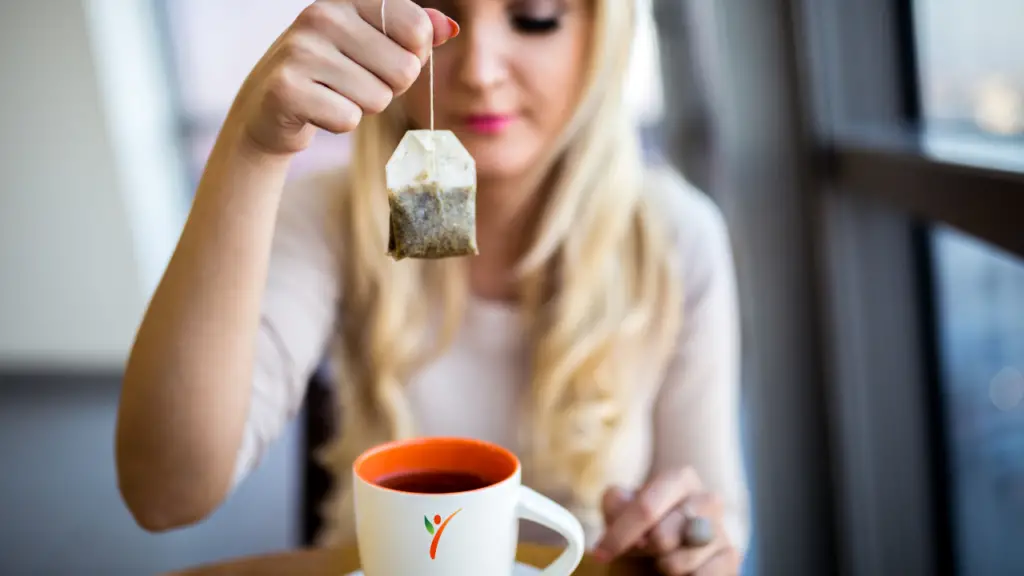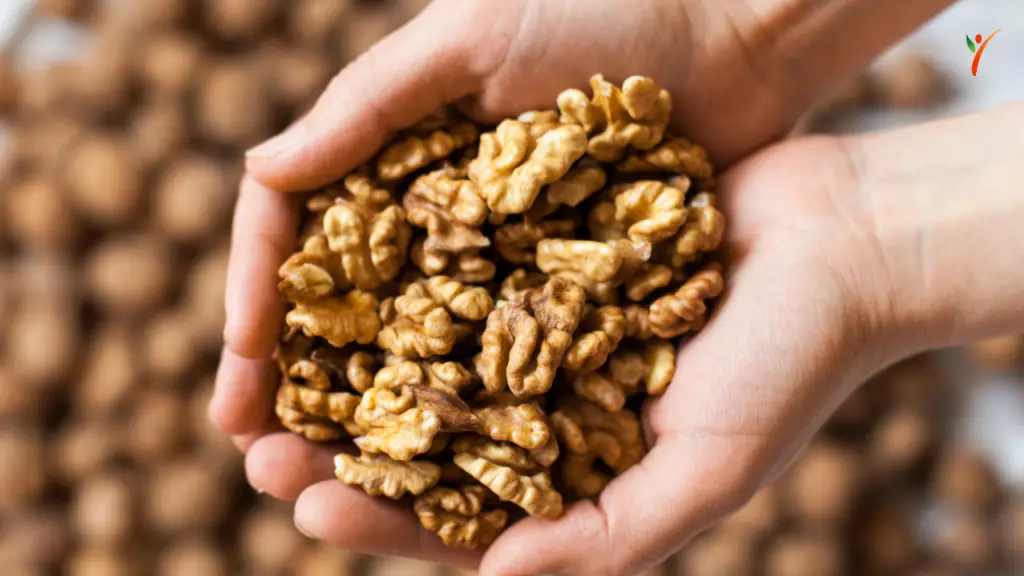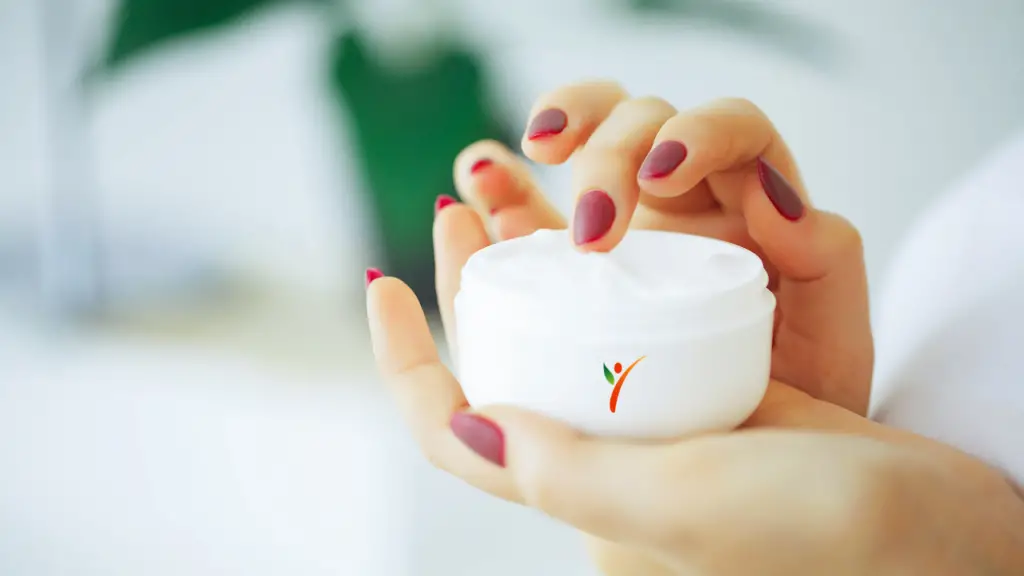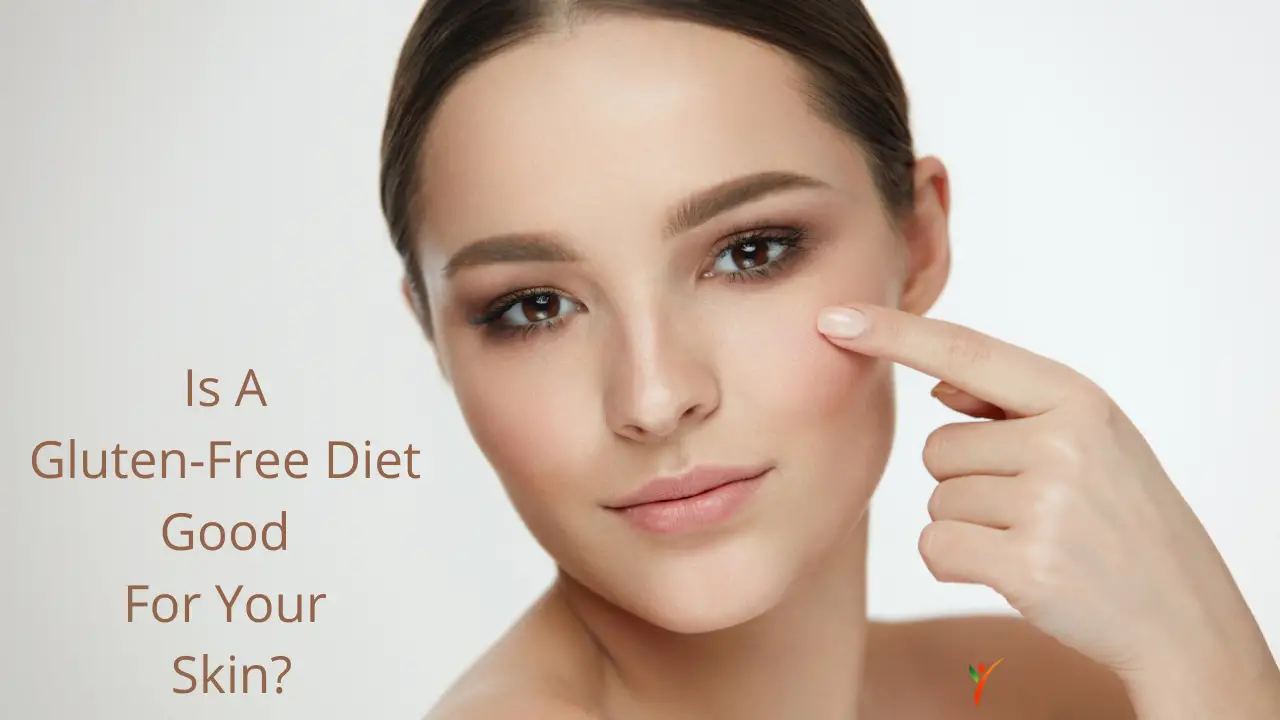With the increasing benefits of a gluten-free diet, have you ever wondered what it does to your skin? Everyone wants young, healthy skin even as they enter fifty to sixty years of age.
But not many consider a healthy diet amongst the steps they should take for healthier skin. The numerous skin care products you apply can only do so much. Your diet is responsible for the actual work of keeping that healthy, young glow.
So, is a gluten-free diet good for the skin? Keep reading to find out the answer to that question; and a lot more!
Gluten-Free Diet, An Introduction

There is a protein present in various foods and dishes, gluten. For instance, wheat, barley, and rye have gluten in them. Certain people are sensitive to this protein because their body undergoes a reaction. Ultimately, the response starts to damage its vital parts, mainly the small intestine. Thus, these people have to follow a strict diet that should not contain gluten.
The gluten-free diet provides relief from the predominant symptom of celiac sensitive patients. Plus, it also helps their bodies in various other ways. If an expert devises a diet plan for you, it can work wonders. Regardless of whether or not you're a celiac patient, nutritionists and dietitians currently suggest a gluten-free diet for everyone.
Gluten-Free Diet and Skin

Before jumping on to how a gluten-free diet keeps the skin healthy effectively, understating the relation is important. Of all the benefits of a healthy diet, this might be one of the most bizarre ones. You can take care of your skin not only with skincare products but also by making sure your diet is proper.
For now, there is not enough proof on whether eliminating gluten improves the skin for those without celiac and gluten sensitivity. But, for those who do, it has helped significantly in reducing the risk of rashes, inflammation, infections, etc. Gluten intolerant individuals often experience these symptoms if they eat gluten-containing foods.
These people should switch to a gluten-free diet, not only for their body's internal system but also for their skin. Don't be mistaken; many gluten-free foods provide benefits for everyone and not just celiac and gluten-sensitive patients. We'll discuss some of these later on in the article.
Relation Between Gluten and Skin Conditions

Let's get the facts straight; there is no direct relation between celiac disease with acne. Alternatively, there are other complications and skin conditions linked to celiac disease. It's safe to say that for those individuals, following a gluten-free diet can provide relief from the symptoms. Individuals with the following skin conditions should opt to switch to a gluten-free diet if they haven't already.
1. Alopecia Areata:
This type of autoimmune disorder results in hair loss on the whole body. It can either be patchy or widespread. Medical professionals have confirmed a link between celiac disease and alopecia areata.
2. Atopic Dermatitis:
Another name for this disease is eczema. This condition, too, is due to immune function and is caused because of genetic abnormalities. Itchy skin and chronic inflammation are the most common symptoms.
3. Dermatitis Herpetiformis:
10% of those with celiac disease also experience this condition. The physical characteristics of dermatitis herpetiformis include blistery rashes due to gluten intake.
4. Hives:
Hives are welts that are red-colored and make you itch wherever they appear. There is little evidence to suggest that hives are related to gluten intake by a gluten-sensitive patient. However, the hypothesis exists that hives develop when a person with celiac disease exposes themself to gluten.
5. Psoriasis:
Research suggests that those suffering from this immune dysfunction get relief from symptoms once they switch to a gluten-free diet. And eliminated, especially if they're gluten sensitive. This disorder's characteristic features are the inflammatory, pink-colored scales that develop on the skin.
What Should You Include in the Diet for Good Skin?
A gluten-free diet has numerous foods and drinks that can make your skin glow. What you're eating does show up on your skin, in one way or another. Here are a few things you should include to have skin that looks as fresh as ever.

Green Tea:
Green tea plays a significant role in proper digestion. Additionally, it can also make your skin glow and make you look younger. There are certain products in green tea that promote circulation. As a consequence, the oxygen supply to the skin increases as well.
Plus, it contains a wide range of beneficial nutrients for your skin. These nutrients help make new cells that replace the old worn-off cells; thus, giving the skin a healthier look. A study conducted shows people who drank green tea for 12 weeks had better, smoother, healthier skin.
Additionally, their skin was also well-protected from the sun's harmful UV rays. Research also shows that drinking green tea significantly reduces skin cancer risk.

Fish:
Another way of keeping skin healthy is by keeping inflammation at bay. From skin glow to dealing with skin infections, they're all aided by reduced inflammation. The most integral compound which fights inflammation is omega-3.
Those who don't get adequate amounts of omega-3 from their diet get exposed to a higher risk of inflammation. Fish is a food rich in omega-3. Therefore, regularly eating fish will help you deal with puffiness and ensure good skin health. Add fish such as mackerel, sardines, tuna, salmon, and cod to increase your omega-3 intake.

Berries:
Don't let the small size of berries make you underestimate them. When it comes to skincare, berries are a great diet addition. As the name suggests, antioxidants help flush out toxins and harmful substances. You won't find a better source of these than berries in the long list of food ingredients.
Other foods come with antioxidants, but not many with higher quantities. Research indicates that strawberries, blackberries, and blueberries have the highest antioxidant content in all food items.
These antioxidants also provide us with various other benefits such as protection from aging, stress, and sun damage. This protection from premature aging gives skin a younger, fresher look. No matter how old you are, say goodbye to that wrinkled skin as long as you're devouring berries.

Nuts:
Among this category, walnuts and Brazil nuts are of significant importance. Like fish, walnuts are a rich source of omega-3, which provides the skin with elasticity. Moreover, walnuts also contain biotin, a type of vitamin B that acts as a natural moisturizer for dry skin.
Individuals suffering from eczema need a higher quantity of Vitamin B to keep the symptoms at bay. A great source of selenium is Brazil nuts, which boosts the body's immune system.
Selenium helps fight infections and complications such as acne. Just like the famous proverb “an apple a day keeps the doctor away”; similarly, two Brazil walnuts a day keep acne away.

Olive Oil:
““Olive oil is my name, and fighting inflammation and flushing out toxins is my game.” It is healthy not only for the skin but also for the heart and brain. Since olive oil is a fat, it automatically helps keep the skin healthy.
Studies prove the inverse relationship between olive oil intake and the number of wrinkles and skin aging. In other words, the higher the consumption of olive oil, the fewer the number of wrinkles and skin aging signs.
People whose intake of fatty acids is higher have fewer wrinkles and relatively more elastic and healthy skin than those with less ingestion.
All of the previously mentioned food sources are gluten-free naturally.
The only risk is that of cross-contamination. Hence, a gluten-free diet can have significantly beneficial properties for healthy skin.
Gluten-Free Skincare Products

There are ongoing contradictions on whether gluten-containing skin products directly affect the skin. But, hear this, lip products that contain gluten should be excluded from your cosmetics. It's because there are numerous cases of accidental ingestion of lip products that can spring trouble for celiac and gluten-intolerant patients.
Similarly, those with a wheat allergy should stay away from any gluten-containing grains in their skincare products. When talking about celiac and gluten-sensitive people, gluten-free skincare products are just extra precautions. Many skincare products contain gluten under various labels. Make sure you check the labels for the following:
Wheat:
Wheat can be present in your skincare products under the following titles:
•Tocopherol (Vitamin E comes from wheat germ oil)
•Triticum Aestivum
•Triticum Boeoticum
•Triticum Vulgare
Oats:
Oats are also a gluten source, so make sure they're not present in your skincare products. Look out for Sodium Lauroyl on the labeling, which indicates oats' presence.
Barley:
The following can be a source of barley:
•Beta Glucan
•Hordeum Distichon
•Phytosphingosine Extract
Rye:
Rye can find its way under the name ‘Secale Cereale' into your skincare products.
Final Take

Healthy skin is the dream for many. And that dream isn't impossible to achieve with the right steps.
A gluten-free diet is worth the hype due to its many skin benefits. When substituting gluten, don't forget to keep the nutrients balanced in your diet.
After all, your skin relies on every bit of the fats, vitamins, minerals, proteins, and fiber; you give it from the inside too.
The owner of this website, HealthYeahLife.com, is a participant in the Amazon Services LLC Associates Program, an affiliate advertising program designed to provide a means for sites to earn advertising fees by advertising and linking HealthYeahLife.com Review to Amazon properties including, but not limited to, amazon.com.






1 thought on “Is Gluten-Free Diet Good for Your Skin?”
Comments are closed.